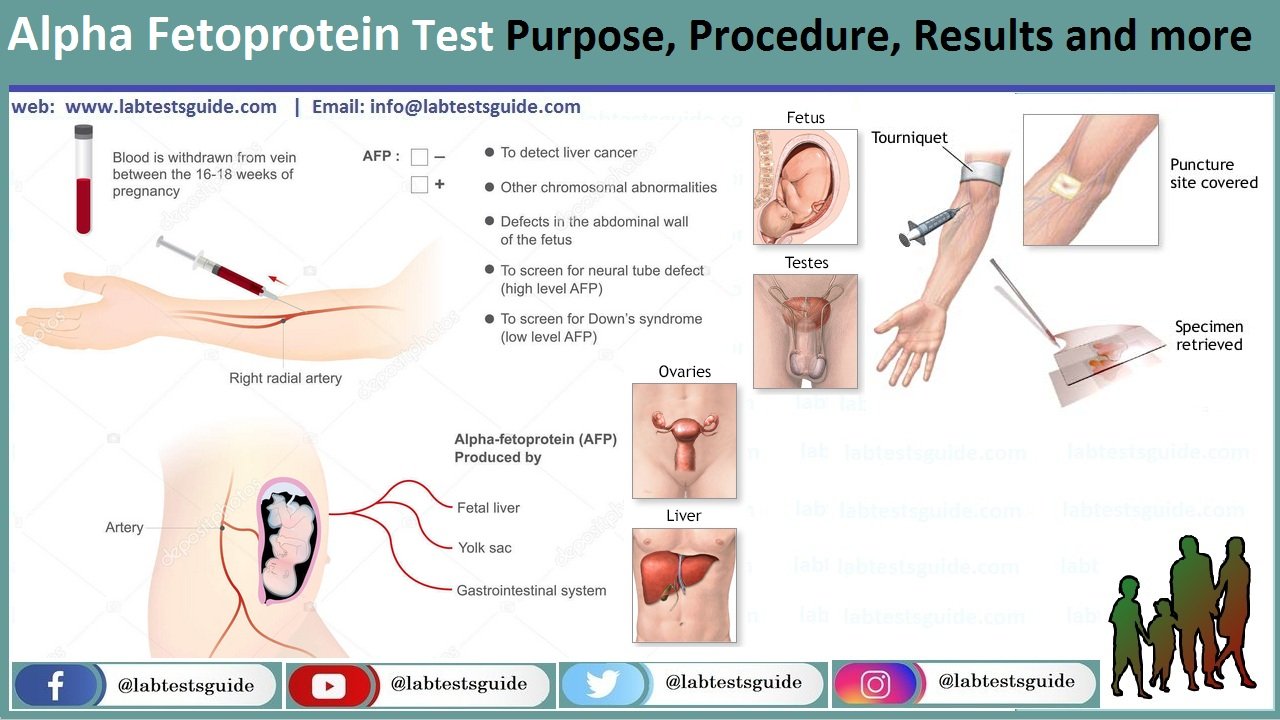
AFP Pregnancy Test: A Comprehensive Guide
Introduction
Alpha-fetoprotein (AFP) is a protein produced by the liver of a developing fetus. During pregnancy, AFP levels in the mother’s blood increase steadily as the fetus grows. An AFP pregnancy test measures the level of AFP in the mother’s blood to assess the health and well-being of the fetus.
Purpose of AFP Pregnancy Test
The primary purpose of an AFP pregnancy test is to screen for neural tube defects (NTDs), which are birth defects that affect the brain and spinal cord. NTDs occur when the neural tube, which forms the brain and spinal cord, fails to close properly during early pregnancy.
Types of NTDs
The most common types of NTDs include:
- Spina bifida: A condition in which the spinal cord does not close properly, resulting in a gap in the spine.
- Anencephaly: A severe NTD in which the skull and brain are missing.
- Encephalocele: A condition in which a portion of the brain protrudes through an opening in the skull.
AFP Levels and NTDs
Elevated AFP levels in the mother’s blood can indicate an increased risk of NTDs. However, it’s important to note that not all elevated AFP levels are associated with NTDs. Other factors, such as multiple pregnancies, gestational age, and maternal weight, can also affect AFP levels.
Procedure for AFP Pregnancy Test
An AFP pregnancy test is typically performed between weeks 15 and 20 of pregnancy. A blood sample is drawn from the mother’s arm and sent to a laboratory for analysis. The laboratory measures the level of AFP in the blood and compares it to established reference ranges.
Interpretation of Results
The results of an AFP pregnancy test are reported as a multiple of the median (MoM). A MoM of 1.0 indicates that the AFP level is within the normal range. MoMs above or below 1.0 may indicate an increased or decreased risk of NTDs.
Follow-Up Testing
If an AFP pregnancy test result is abnormal, further testing may be recommended to confirm or rule out an NTD. These tests may include:
- Ultrasound: An imaging test that can visualize the fetus and assess its development.
- Amniocentesis: A procedure in which a small amount of amniotic fluid is removed from the uterus and tested for genetic abnormalities.
Limitations of AFP Pregnancy Test
While the AFP pregnancy test is a valuable screening tool for NTDs, it has some limitations:
- False positives: An elevated AFP level does not always indicate an NTD. Other factors can also cause AFP levels to rise.
- False negatives: In some cases, an AFP level may be normal even if the fetus has an NTD.
- Not all NTDs are detected: The AFP pregnancy test only screens for certain types of NTDs, such as spina bifida and anencephaly.
Additional Information
- Timing of the test: The AFP pregnancy test is most accurate when performed between weeks 15 and 20 of pregnancy.
- Multiple pregnancies: AFP levels are typically higher in multiple pregnancies, such as twins or triplets.
- Maternal weight: Obese women may have higher AFP levels.
- Other factors: Certain medical conditions, such as diabetes, can also affect AFP levels.
Conclusion
The AFP pregnancy test is a valuable screening tool for neural tube defects. By measuring the level of AFP in the mother’s blood, healthcare providers can assess the risk of NTDs and recommend appropriate follow-up testing if necessary. While the test has some limitations, it remains an important part of prenatal care, helping to ensure the health and well-being of both the mother and the developing fetus.